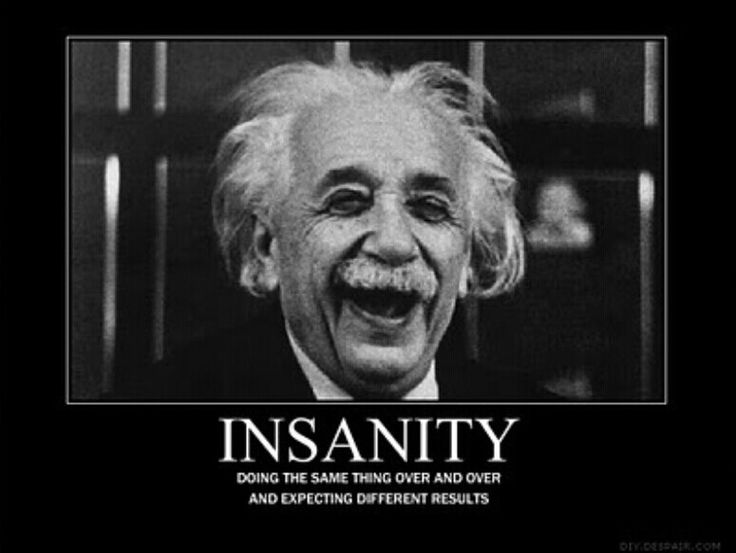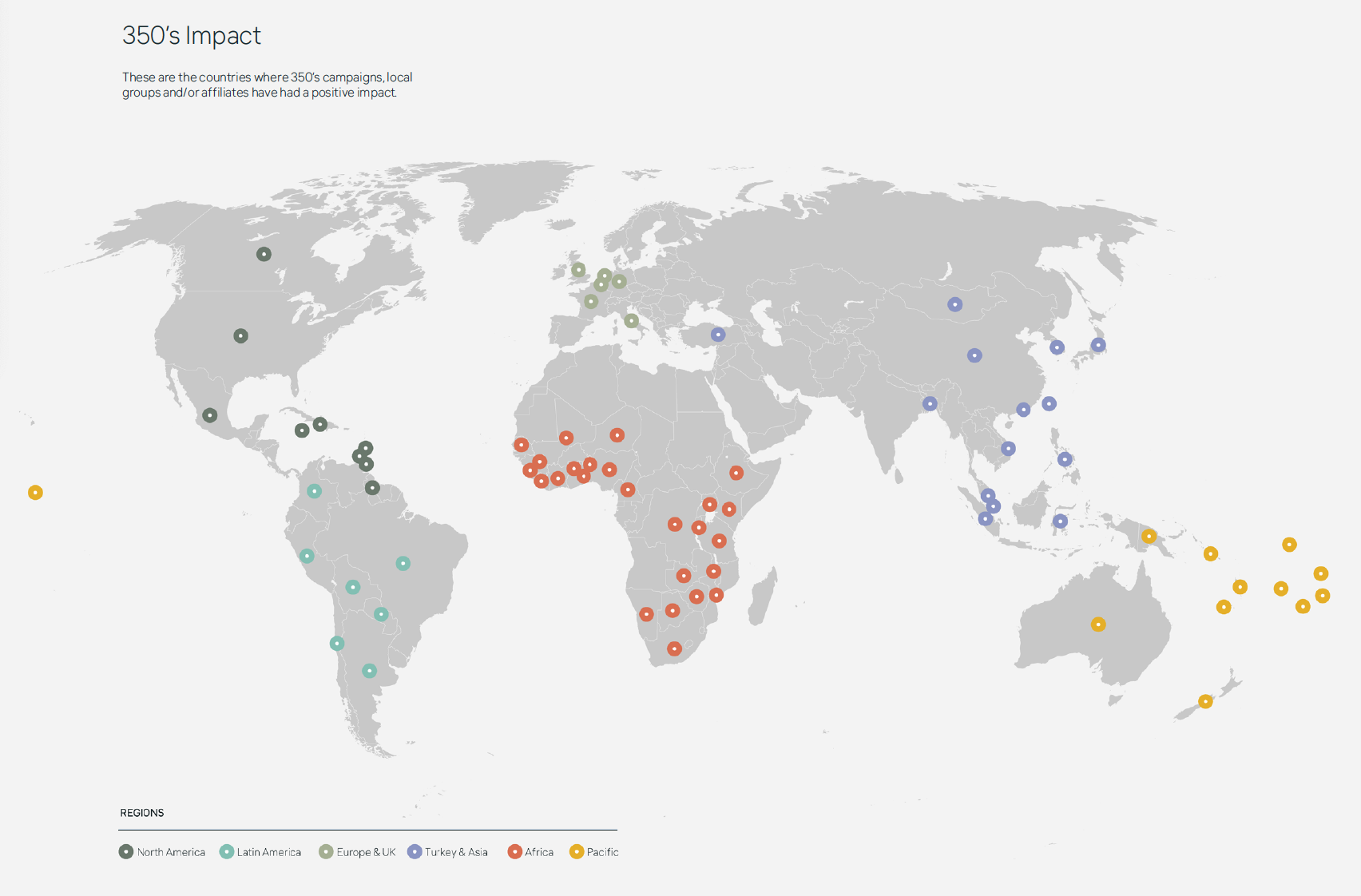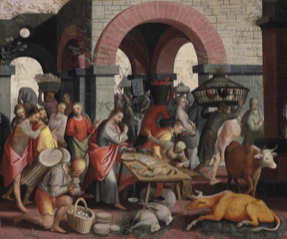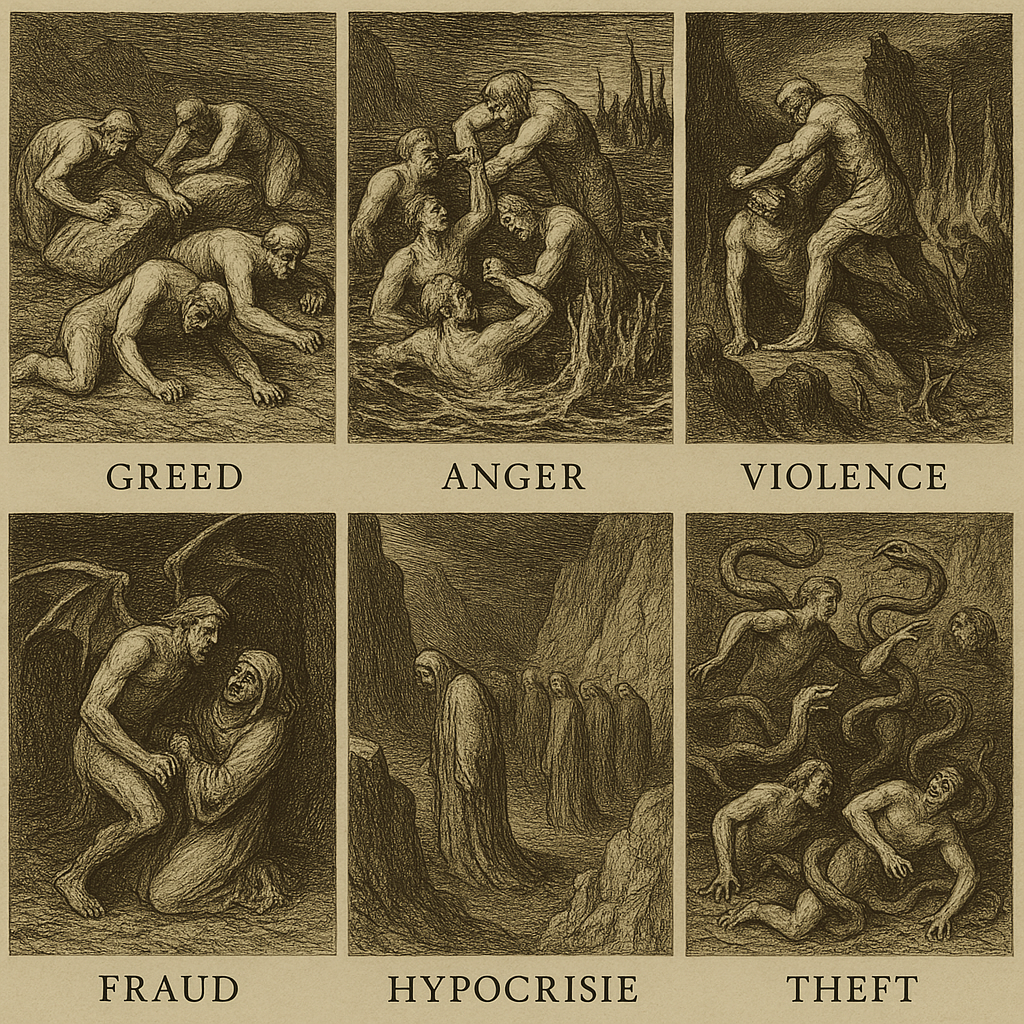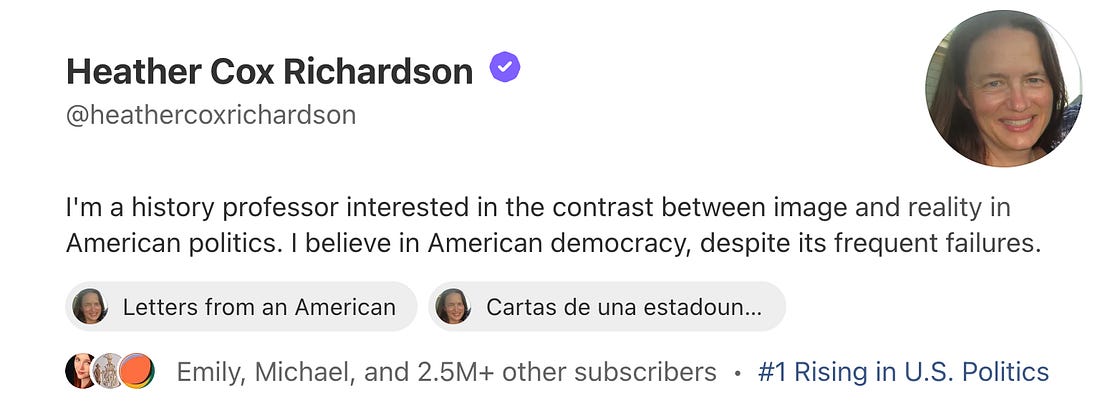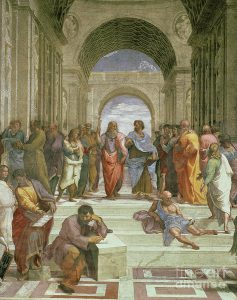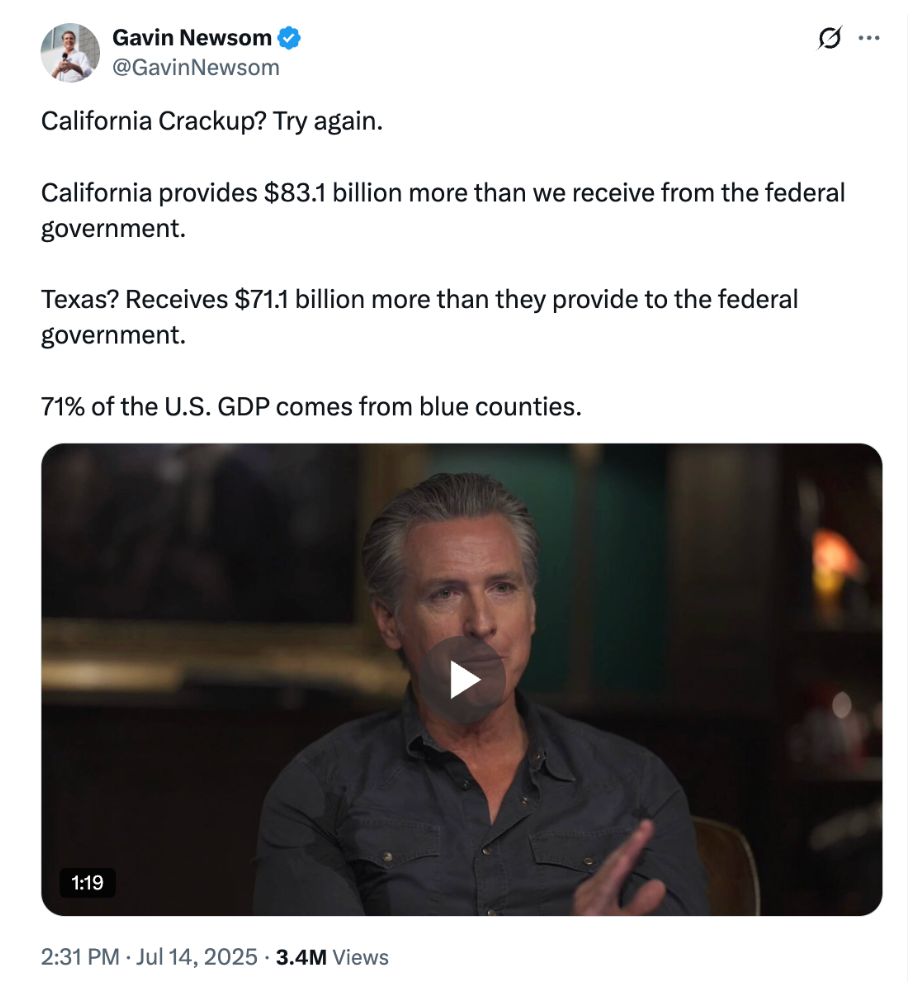August 15, 2025
THIS HELPS TAKE THE ISM OUT OF CAPITALISM. WELL WORTH READING ALONG WITH MALCOLM HARRIS’S PALO ALTO
THEY WILL TAKE YOU SOME TIME, BUT WE NEED TO CHANGE THE WORLD WITH THE CORRECT INTERPRETATION.
An Anticapitalism Manifesto
By
John F. Manley
Professor Emeritus of Political Science
Stanford University
This manuscript draws on years of teaching and writing about American politics, political theory, and Marxism. It is primarily for people, especially students, interested in a critical understanding of the world in which they live, with particular regard to capitalism, socialism, and democracy. An attempt has been made both to avoid jargon and to separate the essential from the merely important.
One of capitalism’s enduring strengths is its relative invisibility. “Free enterprise,” the “market,” “entrepreneurship,” “capitalism and freedom,” and “individualism” all cloud capitalism from view. Sharpening the lens is thus a necessary condition for anyone interested in understanding capitalism and, perhaps, transcending it.
“Business is always thoroughly sound and the campaign
in full swing, until suddenly the debacle takes place.”
Karl Marx
INTRODUCTION
After years of record profits resting on the sand of speculative bubbles, global capitalism in 2008-10 had a near-death experience. Trillions of dollars of “wealth” vanished. Millions of people lost their jobs, homes, and savings. As panicked governments poured billions of taxpayer dollars into banks and financial institutions and corporations deemed too large to fail, the myth of the rational, perfect self-regulating market was exposed for all to see. Populist anger at finance capital and government bail-outs shook the political-economic establishment, but has yet to find effective outlets. Some people began to suggest perhaps Marx was right: capitalism was inherently prone to overproduction, speculation, and self-destructive crises.
Not least among the Great Recession’s victims was the reputation of the mainstream economics profession. Paul Krugman, Nobel laureate in economics, scolded his colleagues for failing to see the Great Recession coming, but even more for “blindness to the very possibility of catastrophic failure in a market economy.” Nothing in prevailing economic models, he noted, suggested the “possibility of the kind of collapse that happened last year.”
But nothing apparently could make Krugman question capitalism itself. For him, market capitalism has flaws and frictions but many virtues. While recognizing that global capitalism came close to collapse, he ignored economists who were not at all surprised by the debacle. Marxist economists and left progressives generally see capitalism as internally contradictory, unstable, incompatible with democracy, and violative of fundamental human values. For them, more is wrong with capitalism than can be fixed by redistributing billions to Wall Street, inflating government deficits, or enacting new government regulations.
What does capitalism look like if one digs a little deeper than mainstream economists dare to go?
What is capitalism?
Capitalism is a system in which those who own and control wealth and the means of production buy and direct labor power from nonowners in a labor market driven by profit.
Upon resigning third baseman Alex Rodriguez in 2007, Hank Steinbrenner of the New York Yankees said, “It’s no different than bidding on a race horse at an auction.” Fine racehorses and fine ballplayers come dear; ordinary labor less so. Cheap or dear, workers in capitalism are commodities whose services are bought and sold. For labor the goal is survival; for capital greater profits. Both need each other, but are hardly equal. With capitalism he “who before was the money-owner strides in front as capitalist; the possessor of labour power follows as his labourer. The one with an air of importance, smirking, intent on business; the other, timid, and holding back, like one who is bringing his own hide to market and has nothing to expect but – a hiding.”
If Marx’s words sound harsh consider those of Adam Smith, the intellectual “father” of capitalism. “The workmen desire to get as much, the masters to give as little, as possible. The former are disposed to combine in order to raise, the latter in order to lower the wages of labour. It is not, however, difficult to foresee which of the parties must, upon all ordinary occasions, have the advantage in the dispute, and force the other into a compliance with their terms. The masters, being fewer in number, can combine much more easily; and the law, besides, authorizes, or at least does not prohibit their combinations.”
Smith famously defended capitalists who, intending their own gain, were led by an “invisible hand” to promote society’s interests. Less often noted than this preposterous claim was his warning that merchants and manufacturers also have an interest in narrowing competition to raise profits. Hence proposals from these classes should be met with suspicion as they have “an interest to deceive and even to oppress the public, and who accordingly have, upon many occasions, both deceived and oppressed it.”
Where did such a system come from?
capitalism’s origins
Capitalism’s origins are often attributed to human nature or to the “Protestant ethic” that motivated people to work hard and saye, putting them in a position to hire those who did not work hard or save.
Long before Max Weber popularized the Protestant ethic theory, Marx, who studied capitalism’s history in depth, lampooned it.
A long time ago there “were two sorts of people: one, the diligent, intelligent, and above all, frugal elite; the other, lazy rascals, spending their substance, and more, in riotous living … . Thus it came to pass that the former sort accumulated wealth, and the latter sort had nothing to sell except their own skins. And from this original sin dates the poverty of the great majority….” Among other problems, the original sin theory hardly explains how the wealth of the rich magically grows long after they ceased to work or die, nor how they acquired their wealth in the first place.
Capitalism’s origins evoke intense debates, but there is wide agreement that its immediate predecessor in Western Europe was feudalism. Yet, Ellen Wood notes, feudalism was internally diverse and produced different outcomes, only one of which was capitalism. Capitalism’s journey out of feudalism was a long one, beginning roughly in the 1500s and culminating centuries later in Britain and the United States. Feudal societies, while different in many ways, were dominantly agrarian, estate-based, and dependent on the surplus labor of peasants who were not free but bonded to the land. Subjects were required to pay rent and homage to the seigneur or feudal lord.
Surplus extraction from peasants in the form of rent, dues, and taxes was not, as in capitalism, based on market exchanges between free labor and the owners of land and other means of production. Extra-economic powers and privileges of the ruling class of aristocrats and royals ensured payment. Feudal peasants remained in possession of some means of production, including land, and enjoyed traditional rights to common areas, while still being ruled and exploited by dominant classes and states. By contrast, capitalist property relations “generated market imperatives and capitalist ‘laws of motion,’ which imposed themselves on production.”
One of the most intense debates is between those who stress capitalism’s origins in commerce and towns over agriculture. In the Low Countries, especially Holland, elements of capitalism emerged in the 1600s. Commerce advanced, agriculture showed signs of modernization, the nobility was weak, and a rich and powerful bourgeoisie emerged. Holland developed the Dutch East Indies Company (1602), the Bank of Amsterdam (1609), a merchant fleet, and processing industries for wool, linen, silk, diamonds, and other commodities. Marx called Holland the capitalist nation par excellence. But nascent Dutch capitalism declined later in the century with depression and wars with England, France, and Spain. The modern capitalist future belonged to England.
Wood, Brenner, and others make a powerful case that capitalism was born not in the city or with merchants but in the English countryside. This is not the place for an extensive historical review, but if, as Wood argues, the central difference between capitalism and pre-capitalist societies is the complete dispossession of the direct producers whose surplus labor is appropriated by purely economic or market means, this reached its most developed modern form in England. “This unique system of market dependence has specific systemic requirements and compulsions shared by no other mode of production: the imperatives of competition, accumulation, and profit maximization, and hence a constant systemic need to develop the productive forces,” she writes. Most importantly, capitalism was not the natural consequence of human nature or of Adam Smith’s claimed propensity to “truck, barter, and exchange.” It was an historical creation. Having been made, it may be unmade.
Despite the common belief that humans are naturally greedy, selfish, and competitive – primed for capitalism – human history includes a wide variety of different modes of production, some of them remarkably communal and cooperative, and capitalism appeared rather late. For most of the time, people produced the necessities and niceties of life under non-capitalist relations of production.
Traces of capitalism can be found in Europe in the 14th and 15th centuries, but the most important beginning was in 16th and 17th century England. With the expropriation of the agricultural population from the soil, and its forced transformation into “free” laborers, a necessary condition of capitalism was achieved. Although peasants were exploited and paid tribute to lords, they became “free” laborers only after being separated from the means of production and relieved of feudal guarantees.
Highly independent artisans, apprentices, and journeyman organized guilds which offered some protection from capitalists. With the advance of industrial, commercial, and agricultural capitalism, historic struggles ensued over the separation of the great mass of people from their means of subsistence, and their transformation into “free and unattached proletarians.”
The bloody process occurred over centuries. The transition from feudalism to capitalism varied across Europe, but everywhere violence and control of the state played central roles. “In addition,” as Marx noted, “the discovery of gold and silver in America, the extirpation and entombment in mines of the aboriginal population, the beginning of the conquest and looting of the East Indies, the turning of Africa into a warren for the commercial hunting of blacks-skins signalised the rosy dawn of the era of capitalist production.” Understandably, these aspects of capitalism’s history tend to be minimized or left out altogether of mainstream accounts, but without them capitalism’s history is, to say the least, woefully incomplete.
Economists since Adam Smith have identified capitalism with the market – the “free market” – and both with liberal democracy in a mixture that became the leading ideology of capitalist societies, helping to propel capitalism to global domination.
But market exchanges exist in many different modes of production, not just capitalism; the “free market” focus obscures the inequalities of the people exchanging in the market; and liberal democracy, the form compatible with capitalism, is a far cry from government by the people.
Marx recognized the importance of market competition among capitalists (one capitalist always eats many) and between labor and capital, but he riveted attention on something else: the social relations of production between capitalist and labor, not the market arena or rules under which these relations play out. Crucial was the “separation between labourers and conditions of labor, to transform, at one pole, the social means of production and subsistence into capital, at the opposite pole, the mass of the population into wage-labourers, into ‘free laboring poor,’ that artificial product of modern society.”
Capitalist ownership of the means of production is capital’s decisive advantage. The instruments of labor became the means of “exploiting and impoverishing the labourer … crushing out the workman’s individual vitality, freedom, and independence.” From the point of view of labor, selling one’s labor power is not a matter of free choice but a necessity; the exchange is between superior and inferior, hardly an example of freedom in action.
Karl Marx and Frederick Engels in the Communist Manifesto compared capitalism’s productivity favorably to all previous modes of production. The bourgeoisie they wrote “has accomplished wonders far surpassing Egyptian pyramids, Roman aqueducts, and Gothic cathedrals; it has conducted expeditions that put in the shade all former Exoduses of nations and crusades.” Capitalism did all this by constantly revolutionizing the instruments of production, and thereby the relations of production and the whole relations of society.
Moreover, the bourgeoisie, impelled by a constantly expanding market, revolutionized old national industries and created new ones. The cheap prices of its commodities battered down all Chinese walls, compelling all nations to adopt the bourgeois mode of production. It created enormous cities, and centralized the means of production and property in few hands. In scarcely 100 years the bourgeoisie created more colossal productive forces than all preceding generations together, subdued nature to the machine, cleared whole continents for cultivation, and revolutionized feudalism and petty production.
Capitalism accomplished all this not by modifying feudalism but by smashing it. Controversies rage over where and when feudalism succumbed, and what forces were paramount, but clearly what Marx called capitalism’s “laws of motion” were centrally important. The market relationship between owners of the means of production and non-owners who had only their labor power to offer, the market imperative to produce more efficiently than other capitalists, to improve labor productivity, to maximize profits, above all to grow and expand – all these drove capitalism to unprecedented production expansion.
Yet, capitalism’s tremendous productiveness has always been marked by contractions. Its expansion also required major state interventions. Capitalism’s progress has neither lessened the exploitation of workers nor of nature. Subjecting all human and environmental needs to the imperatives of profits destroys much of the quality of human life and the natural environment just as surely as it increases production of consumer goods. “The expansion of capitalist imperatives throughout the world,” Wood writes, “has regularly reproduced effects that it had at the beginning within its country of origin [England]: dispossession, extinction of customary property rights, the imposition of market imperatives, and environmental destruction.”
Although capitalism represented the future in Europe and elsewhere, different countries followed somewhat different paths and time schedules.
As long as royal and aristocratic governments ruled, and law and property requirements kept political power in safe hands, elites had little to fear from the masses. Enclosure riots and other disturbances could be crushed. With capitalism, however, a new class, indeed two new classes, arose, challenging the older, landed ruling class.
In England, some great families of the aristocracy and gentry were involved in business; some allied with the rising bourgeoisie of high finance, trade, and manufacture. Intermarriage, common education, and shared attitudes toward property for a time formed a new, relatively united, ruling class. By the mid-1800s, the bourgeoisie assumed dominance. The peasantry in England had been weakened by centuries of enclosures and displacements, while the working class was heterogeneous and divided, so class conflict, while pronounced, was contained.
In France, the 1789 revolution marked the defeat of the nobility and clergy and the advance of the bourgeoisie. Petty bourgeois traders and artisans also enjoyed a rise in status. After Napoleon, bourgeois bankers, manufacturers, and traders split with the landed aristocracy, depending more on a coalition with peasants and the petty bourgeoisie. An alliance with the nobility in France was out of the question as noble reactionaries pined for a return to a monarch like Louis XVIII. After Charles X was overthrown in 1830, a large segment of the aristocracy retreated to their estates. Industrial capitalism advanced more slowly in France than in England, as French society remained more provincial, rural, and craft-based.
In 19th century Germany, the state assumed the lead role in the political economy. The German bourgeoisie faced a relatively well-organized working class and strong socialist movement. Capitalists accepted an alliance with the landed nobility, political domination by the state, and (grudgingly) social reforms promoted by Bismarck and other Prussian leaders designed to blunt socialism’s appeal.
In the United States, there was no powerful feudal ruling class to destroy. A rural political and economic elite exerted disproportionate power up to the Civil War, but the war ended slavery and spurred industrial development. War spending, railroads, industrialization, tariffs, immigration, new manufacturing techniques, and the rise of finance capital created the conditions for accelerated capitalist development in the last third of the 19th century. J.P. Morgan, Jay Gould, Jim Fisk, Cornelius Vanderbilt, John D. Rockefeller, and others comprised the “robber barons” of the new capitalist-based ruling class. Organized labor also developed in this period. Class conflict and militant labor resistance were often repressed by national, state, and local governments, which fueled turbulence in the cities akin to the rural protests reflected in the anticapitalist populist movement. Efforts to unite urban workers and populist farmers were attempted, but to little avail.
CAPITALISM AND DEMOCRACY
Capitalism, rooted in private ownership of the means of production, presupposes a high degree of economic and social inequality, so how were capitalism and democracy made compatible? Democracy was radically redefined, and capitalist property then made exempt from democratic controls.
Democracy originally meant majority rule, which translated to rule by the poor and those lower down the social economic ladder. For Aristotle, democracy was a system “in which the free-born and poor control the government – being at the same time a majority; and similarly the term ‘oligarchy’ is properly applied to a condition in which the rich and better-born control the government – being at the same time a minority.” His preferred system was based on a large middle class which did not covet the goods of others, which, he lamented, is rare.
Aristotle, Plato, and other Greek thinkers worried about democracy’s radical implications. Free adult men were entitled to participate in the Assembly which could and did interfere with property rights. In Greece, debts were abolished and voters elected courts. Democrats and aristocrats battled each other for 200 years until the poor ultimately lost political power, but not before instilling fear of democracy in upper classes throughout the western world.
From ancient times, democracy has represented a threat to elites everywhere, producing a variety of responses, from bloody repression to grudging and conditional acceptance, to the creation and propagation of a definition of democracy compatible with capitalism.
Marx and Engels are often depicted as fathers of totalitarian regimes, but in fact they were ardent defenders of radical democracy. Political democracy for them meant political power for the proletariat, the great majority. Having won the battle for democracy the proletariat would proceed to pass radical socialistic measures that would ultimately displace capitalism.
The democratization of the franchise was opposed by such conservatives as Edmund Burke, who considered it a scandal, but as capitalism became firmly established “liberal” democracy became a way of preserving the system, not ending it. As C.B. Macpherson notes, liberalism, the ideology of the capitalist class, was democratized, and democracy, the ideology of the poor, was liberalized. That is, diluted.
Liberalism was the philosophical expression of a rising capitalist class burdened by medieval norms defining interest as usury, setting moral limits to the pursuit of wealth, protecting guilds that restricted the free exploitation of labor, granting land rights to peasants, and protecting a politically powerful and parasitic aristocratic class. Liberalism was the ideology that freed capitalists from political inhibitions on the full exploitation of their resources, including labor.
The pursuit of gain was, of course, as old as history. What was new was a philosophy and economic order which said social well-being is best attained by giving individuals the widest possible freedom to get rich. Liberalism presented capitalists as social benefactors. If the state refrained from interfering with the rights of property, so much would be produced that the standard of living of all, not just the capitalists, would rise. Capitalism required a net transfer of power to capital, which trade-off was to be accepted by labor if capitalism delivered tremendous increases in living standards. When capitalism faltered or failed, or socialist societies showed that they too can be productive, liberal capitalism had a problem.
Liberal democratic theory defines democracy as the selection of representative elites who make public policy, in contrast with the active participation of the people in decision-making and governance.
Participatory democracy presupposes independent people who are sufficiently equal economically (none rich enough to buy another, and none so poor as to be forced to sell himself or herself). Such people can practice political democracy, which practice develops and educates the public character required for merging public and private interests. Participatory democracy is incompatible with capitalism because it requires economically secure independent individuals who make production and distribution decisions as a democratic collective.
As Rousseau put it: “The first man who, having enclosed a piece of ground, bethought himself of saying, ‘This is mine,’ and found people simple enough to believe him, was the real founder of civil society. From how many crimes, wars, and murders, from how many horrors and misfortunes might not any one have saved mankind, by pulling up the stakes, or filling up the ditch, and crying to his fellows: ‘Beware of listening to this impostor; you are undone if you once forget that the fruits of the earth belong to us all, and the earth itself to nobody.’” Applying the term democracy to this radical conception and to liberal democracy obviously drains the term of coherent meaning
Equality and democracy historically go together, which poses a dilemma for “democratic” systems with high levels of economic and social inequality.
Distinguishing economic and social equality from political equality is standard in capitalist societies. Equal opportunity to rise ensures the perpetuation of social and economic inequality. If political movements should push radical redistribution of wealth or income, capitalist states bar the door. This has been understood at least since Adam Smith in 1776, the same year Thomas Jefferson declared all men were created equal and endowed by their creator with certain unalienable rights.
“Wherever there is great property,” Smith wrote, “there is great inequality. For one very rich man, there must be at least five hundred poor, and the affluence of the few presupposes the indigence of the many.” The poor, he continued, are often driven by want and envy to invade the possessions of the rich. The solution: only under the protection of the state can owners “sleep a single night in security.” Surrounded by enemies he can never appease, the rich man depends on civil government – law and force – to protect his property. On fundamentals, there was never anything invisible about the hand of the state.
Equality and democracy pose difficult issues for capitalism. In the United States, Alexander Hamilton, representing the classic elitist position, told the Constitutional Convention in 1787: “All communities divide themselves into the few and the many. The first are the rich and well born, the other the mass of the people…. The people are turbulent and changing; they seldom judge or determine right.”
Not all of the framers in Philadelphia went as far as Hamilton, but most did. James Madison, the father of the Constitution, argued that America did not have the extremes of wealth and poverty found in Europe, but rich and poor did exist, and as the population increased equal laws of suffrage would put political power into the hands of the majority. Dangerous symptoms of a leveling spirit, he told his colleagues, have appeared, and need to be checked by strong, central authority.
Thomas Jefferson, perhaps the most democratically inclined national figure, was in France, not Philadelphia. But he gave the classic statement of the dilemma: “Men by their constitution are naturally divided into two parties. First, those who fear and distrust the people, and wish to draw all power from them into the hands of the higher classes. Secondly, those who identify themselves with the people…. The last appellation of aristocrats and democrats is the basic one expressing the essence of all.”
Government protection of wealth and economic inequality is not an aberrant product of liberal democratic capitalism: it is the point. Labor’s share may increase or decrease depending on the market and the vagaries of class conflict, but liberal democratic governments prefer to leave these decisions, if possible, to the market, not politics.
Ever since the Greeks, democracy – power to the demos – was usually considered by elites as the worst of all possible governments. As the centuries-old feudal order gradually gave way to capitalism, sprouts of democratic ideas and movements began appearing with alarming regularity. An important early battleground was 17th century England.
After the New Model Army of Oliver Cromwell dispatched the king, a group of rank-and-file soldiers invited two generals, Cromwell and his son-in-law Henry Ireton, to meet at Putney for a discussion of the proposal that all adult males be given the right to vote.
The Levellers, represented by Colonel Rainsborough, argued the poor had a life to live as well as the great, so the only legitimate government was one based on popular consent. General Ireton answered that political power properly rested in the hands of those with a fixed interest in the kingdom: large landowners and men engaged in trade. Political equality he claimed would inevitably doom unequal ownership of property. How to contain the radical implications of democracy and safeguard social economic inequality proved to be a vexing problem in the centuries that followed. In England, an answer of lasting importance to all liberal democracies was given by John Locke in 1690.
Locke provided the basis for an alternative theory which helped make capitalism and the power of the rising capitalist class compatible with “democracy.”.
Locke’s starting point was curious. He began with the claim that all men had equal rights to acquire the necessities of life by mixing their labor with nature. Property so acquired could rightfully be excluded from other men, as long as enough good was left in common, and nothing was left to spoil.
Enclosing land from the commons was not theft because, although God gave man and the earth in common, He also gave man the ability to reason, commanding man to improve the earth through labor. Further, since no man could appropriate more than a small part of nature, and the earth was vast, every man’s possession would be moderate.
From this promising start, Locke proceeded to justify inequality in property and wealth, ownership of the products not only of one’s labor but of the labor of others, taking colonial lands from the aboriginal population, and even slavery. Here was a tour de force for the ages.
Moderate if unequal appropriations from nature would have continued Locke argued if men of unequal abilities had not tacitly agreed to put a value on commodities like gold and silver. By converting to money, men put exchange or market values above use values. Inequality resulted because money suspended the rule limiting property from labor to use values.
Because men also had a right to sell their labor power, buyers had a right to the products of purchased labor. Property that came from mixing one’s labor with nature was thus equated to property coming from the purchased labor of others.
In addition, buying and selling of labor power promised to be vastly more productive than individual proprietors laboring to produce the necessities of life. Increased production thus emerged as a fundamental justification of the new capitalist order. Those who acquired great wealth and property were considered, moreover, as social benefactors, not greedy exploiters of labor. An acre of cultivated land enclosed from the commons could produce ten times more than one “lying waste in common,” so he who enclosed ten acres could truly be said to give 90 acres of production to mankind. The same strained logic justified the colonization of areas when the original inhabitants did not improve the land sufficiently, that is, increase its exchange value. Locke glided over the issue of how much added value should accrue to capital compared to those who actually performed the labor.
A rather different argument justified slavery. Captives in a just war, and those who forfeited their right to live by some capital offense, could justly be executed or enslaved. Locke himself administered a slave colony in America (Carolina) whose constitution gave freemen absolute power and authority over slaves. Locke acknowledged that slavery was a vile and miserable state, which did not prevent him from justifying the forays of the Royal African Company as long as blacks were captured in just wars.
Finally, once the natural state of rough equality was breached, protection was needed for unequal property. Men in the natural state were free, equal, and independent. The only valid source of governments, therefore, was consent. Why would men consent to government? Locke’s classic answer: to enjoy a comfortable, safe, peaceable living and secure enjoyment of their property. “The great and chief end, therefore, of Men uniting into Commonwealths, and putting themselves under Government, is the preservation of their property.” With this, Locke completed the classic defense of liberal democratic capitalism, which continues to this day to serve capitalism well.
Locke’s influence spread widely but nowhere more than in America. Not only did Locke argue that kings derive their power from men, not God, justifying revolution against oppressive monarchs, he affirmed a natural right to life, liberty, and property, broadened by Jefferson in the Declaration of Independence to life, liberty, and the pursuit of happiness. When threats to property in the 1780s sparked the Constitutional Convention, the guiding spirit, as Herbert Aptheker noted, was Locke’s theory of bourgeois liberty.
The framers of the American Constitution faced similar issues as those debated at Putney. Farmers in Massachusetts led by Daniel Shays stopped courts from enforcing mortgage foreclosures, causing George Washington to warn James Madison about “agrarian laws” and paper money schemes for redistributing property. At the Constitutional Convention Madison warned the delegates of turbulent scenes in Massachusetts, and infamous ones in Rhode Island where the paper money party controlled the legislature and governorship, and similar uprisings in Virginia dangerous to “republican” government.
A month before the convention Madison posed the central question: how to prevent a majority united by a common interest from violating the rights of a minority? John Adams was even more explicit. If all were decided by the majority what would prevent the “rabble, the canaille” or even the middling people from violating the rights of the propertied? In Federalist 10 Madison wrote that “the most common and durable source of factions has been the various and unequal distribution of property.” His famous solution was to expand the scope of government to include a larger number of factions, making it difficult for a majority faction to form, and erecting a stronger central (if checked) government that might control the violence of faction and contain democratic excesses.
A greater contrast with Marx and Engels would be hard to imagine. In the Communist Manifesto they welcomed the victory of the proletariat, the vast majority, in the battle for democracy as a prelude to wresting by degrees all capital from the bourgeoisie and then abolishing capitalist property in land, labor, and the means of production.
Locke was primarily a philosopher, not an historian. His defense of agrarian capitalism undeniably served rising capitalist classes well, but his account slighted crucial aspects of the the bloody process by which capitalism displaced other modes of production.
Marx was a philosopher and historian, and his account of capitalism presents a radically different picture. The expropriation of the agricultural population from the land, and of artisans from the means of production, the enclosure of arable land into sheep-walks with the rise in price of wool, the allocation of Church estates to royal favorites following the Reformation, the rise of the “bankocracy,” the de facto enslavement of the Gaels, the “veiled slavery” of wage workers, one competitive capitalist killing many, capital’s entrance in the world dripping head to foot, from every pore, with blood and dirt – all these are recounted in Marx’s Capital. No were-wolf’s hunger for surplus labor, no monstrous exactions from labor comparable to the cruelties of the Spaniards to the American redskins, no children of nine or ten dragged from their beds and compelled to work in mines mar Locke’s abstract theory and defense of agrarian capitalism. Omitting history from political philosophy has long impoverished studies of political thought.
Capitalism in the United States
In the United States capitalism was not originally the dominant mode of production. In many colonies and states slavery dominated; in others yeoman farmers, artisans, and independent producers prevailed.
What lured many immigrants to America was the availability of land (expropriated from the aboriginal population), the chance to become independent farmers and artisans beholden to no masters, and the chance to escape wretched poverty. America for a time enjoyed the reputation as the best poor (white) man’s country on earth. For whites, the availability of land and the premium placed on labor created unusual economic opportunities.
Listen to Captain Edmund Johnson in his History of New England (1654): “Oh yes! Oh yes! All you people of Christ that come here oppressed, imprisoned and scurrilously derided; gather yourselves together, your wives and little ones and… you shall be shipped for His service, in the western world, and more specially for planting the united colonies of new England….”
Newly-landed Puritans drew parallels between themselves and the “children of Israel delivered out of bondage in Egypt into the promised land of Canaan.” In 1796, Joseph Priestley, discoverer of oxygen, friend of Thomas Jefferson, and a political refugee from England, wrote a letter that circulated widely in English manufacturing towns: “Here we have no poor; we never see a beggar, nor is there a family in want.” Priestley’s letter was called an “abominable falsehood” by William Cobbett. Luke Bentley, an ordinary American, wrote more accurately to his brother in 1818: “There are poor people here, but no children crying for bread in vain, they have all enough to spare. This is the promised land….” Priestley and Bentley were apparently blind to the condition of slaves and poor indentured servants.
No one has written more excitedly about America’s democratic promise than J. Hector St. John Crèvecoeur whose Letters from an American Farmer appeared in 1782. Crèvecoeur identified the key difference between Europe and America as the absence of elites who rob the people of the fruits of their labor. “Here the rewards of his industry follow with equal steps the progress of his labour; his labour is founded on the basis of nature, self-interest; can it want stronger allurement?” The new citizen, he wrote, loses the “servility of disposition that poverty teaches.”
Crèvecoeur wrote as a middle settlement inhabitant, where agriculture prevailed, not the seacoast city or the extreme frontier. He slighted women, slaves, indentured servants, and Native Americans. But he nonetheless expressed the core values of the white democratic dream of America.
At the beginning of the United States there were those who, like Crèvecoeur and Thomas Jefferson, envisioned a relatively equal society of independent producers who owned and controlled their own means of production, and there were others, like Alexander Hamilton, who envisioned an elitist, commercial, industrial capitalist society. The resulting conflicts and debates are still instructive.
Jefferson began with the belief that the earth belongs to the people. If to encourage industry some of the earth is appropriated, other employment must be provided those excluded from the appropriation. If not, the fundamental right to labor the earth returns to the unemployed.
The man who wrote that all men were self-evidently created equal, with certain unalienable rights, urged that the U.S. let manufacturing workshops remain in Europe. In 1814, he explained his hope for democratic America: “The great mass of our population is of laborers; our rich who can live without labor, either manual or professional, being few, and of moderate wealth. Most of the laboring class possess property, cultivate their own lands, have families, and from the demand for their labor are enabled to exact from the rich and the competent such prices as enable them to be fed abundantly, clothed above mere decency, to labor moderately and raise their families….”
Jefferson also expressed a grudging acceptance of manufacturers, but with an important caveat: urban workers would remain as independent and moral as the country’s agricultural inhabitants as long as there were vacant lands to resort to when other classes attempted to reduce them to the minimum of subsistence. The fundamental Jeffersonian proposition, which Franklin Roosevelt quoted in a 1936 campaign address, was “widespread poverty and concentrated wealth cannot exist side by side in a democracy.”
Here was a vision of the United States not as a capitalist society in which the elitist American dream promised material prosperity to those of ability who worked hard, and lesser or no rewards to the less able or lazy, but of a thriving democratic society of generally equal, free, independent, and prosperous people. Jefferson was not alone in these beliefs. Benjamin Franklin, well-acquainted with mass poverty in Europe, wrote that manufactures are founded in poverty, for only the poor who must work for others at low wages or starve will work for a master. Like Jefferson and Franklin, James Madison believed economic equality and independent producers were essential to republican government. Madison was fond of citing the example of 20,000 English buckle-makers thrown out of work by the changing caprice of fashion as an example of what to avoid in the United States.
Jefferson was well aware of the practical difficulties facing an equal division of property and wealth. “But the consequences of this enormous inequality producing so much misery to the bulk of mankind,” he wrote, “legislators cannot invent too many devices for subdividing property….” And one means he suggested was to “exempt all from taxation below a certain point, and to tax the higher portion of property in geometrical progression as they rise.”
Madison’s study of ancient and modern societies showed him that they were most often torn apart by conflicts between the rich and poor, creditors and debtors, patricians and plebians. He warned that as capitalism advanced, republican society and government would recede. As the wage-dependent population grew, great wealth would concentrate in few hands and, with this, would come conflict between “wealthy capitalists and indigent laborers.”Although Madison at Philadelphia was most concerned with protecting property from democratic majorities, as capitalism advanced he struggled with the emerging conflict between capital and labor and republican government, never fully attaining a satisfactory answer to the democratic dilemma.
Unfortunately for Jefferson, Franklin, and Madison, men like Alexander Hamilton had a quite different future in mind. Despite his inferior birth, Hamilton was welcomed into the New York aristocracy whose view of ordinary people was a mixture of contempt and fear. “Take mankind in general,” he told the Constitutional Convention, “they are vicious,” so in contriving a government every man ought to be supposed a knave having no other end but private interest. He scoffed at egalitarian views of America. Differences in property were already great, and commerce and industry would increase the disparity.
As Washington’s Treasury Secretary, Hamilton wrote the classic state papers that mapped the country’s future. While Jefferson and others fretted over economic equality and republican government, he embraced manufacturers, credit, finance, and elite control. For him, democracy was mob rule; the people a “great beast,” dangerous to the security of property.
The Constitution was not formally an aristocratic document, he argued, because it did not elevate the rich to perpetual rank above their fellow citizens, but republican government in America would last only as long as property was evenly divided. As wealth accumulated in relatively few hands “virtue” would increasingly be seen as a “graceful appendage” of the rich, and republicanism would fade. Yes, vices afflicted rich and poor, but the vices of the rich were more favorable to the prosperity of the state. He told the New York State ratifying convention, “The ancient democracies, in which the people themselves deliberated, never possessed one feature of good government. Their very character was tyranny; their figure, deformity.” It is altogether fitting that he reposes in a marble tomb around the corner from the New York Stock Exchange.
Hamilton offered telling answers to all of Jefferson’s concerns save one. Nowhere in his famous papers does he deal with the adverse consequences of the capitalist revolution he so warmly embraced.
In the 1830s, when Alexis de Tocqueville toured the United States, he was most impressed by the equality of condition that supported the fledgling democracy. Equality of condition for Tocqueville was a necessary condition of democracy because without it, people lack the love of independence essential to democracy; the basic difference between democracy and aristocracy is that in aristocracies the rich govern; and without equality of condition in a democracy no one’s property is truly safe. Commerce and industry, however, undercut democracy because they depend on a large working class and a new aristocracy. If “ever a permanent inequality of condition and aristocracy again penetrates into the world,” he warned, “it may be predicted that this is the gate by which they will enter.”
Tocqueville’s account slighted indentured servants, slaves, and the rural class of poor whites, but his warnings about industrial capitalism were correct. Lamentably for his version of democracy in America, the seeds of industrial capitalism were already planted. As villages and markets expanded, family enterprises were displaced by merchant capitalists who “let out” production to journeyman workers. The wage–bargain assumed importance and the employer function came to the fore. “The conflict of capital and labor,” John R. Commons wrote, “begins.”
As early as 1773 a Maryland clergymen observed that employers and the employed no longer live together with anything like attachment, and the laboring class harbored ill feelings toward their employers. In 1794, shoemakers in Philadelphia formed the first successful union. They struck against wage cuts in 1799, and struck again in 1805.
In 1790, Samuel Slater, financed by the wealthy Brown family whose money came from the rum and slave trade in the West Indies, mechanized the spinning of cotton yarn in his Pawtucket, Rhode Island shop. In 1793, Slater erected the country’s first textile factory, employing largely child labor. Within a few years the Blackstone valley and the valleys of eastern Connecticut were covered with factories. In the 1820s Francis Cabot Lowell and the Boston Associates financed much larger factories in Lowell, Massachusetts which employed power looms and power-driven spinning frames and young unmarried Yankee farm women.
In 1824 women participated in the first factory strike along with men. In1825 the tailoresses of New York struck for higher wages. When Charles Dickens toured Lowell in 1842 the workers initially struck him as happy, contented, and well-dressed. Coming from England, where working conditions were dreadful, Dickens’s report may be understandable, but the boarding houses of the Lowell workers were soon overcrowded; the girls’ lives were controlled by paternalistic factory owners; wages were low, and hours long. Elsewhere, women workers wrote that factory conditions in the United States were no better than in England, and in the 1830s women again experimented with strikes. With the 1837 depression and the 1840s potato famine in Ireland, the owners had a large new supply of labor to exploit. The machine had entered the garden. Jefferson’s America was passé.
Two major institutions organize the political-economic behavior of millions of people in capitalism: business and the state. Although states sometimes conflict with segments of business, capitalist states are committed to doing whatever is necessary to ensure acceptable economic performance and capitalism’s preservation.
As Charles Lindblom writes, capitalists control vital public functions no government can ignore: growth, jobs, prices, production, investment, and economic security. Business, whatever internal conflicts exist within it, occupies a position rivaled only by the state. Since the state is a capitalist state, when crises occur the state acts to preserve the system. Government officials are predisposed to supply business with whatever it needs to assure profits adequate for economic and social stability. Labor, too, occupies an important position, but, as Lindblom notes, workers work without the inducements required by capital because their livelihoods depend upon it. Capital occupies a privileged position in liberal democracies, which is why government defers to it as to no other group. The state is not indifferent to labor’s needs. If social unrest rises, or if unemployment reaches critical mass, the state will intervene, lest the system itself be put at risk. But the intervention will be directed at perpetuating a system whose contradictions routinely produce the necessity for state intervention.
Three dreams run through American history: the democratic dream, the elitist dream, and the American dream.
The American dream, which the critic Maxwell Geismar called our “ruling myth,” is a materialistic dream well-captured in the Horatio Alger novels, the rags to riches success stories of self-made men, poor immigrants making good, winners of the lottery, Silicon Valley entrepreneurs, and gold rush millionaires.
The American dream fits perfectly with a capitalist society where the dominant value is equal opportunity. Equality is limited to legal and political affairs, not economic. No lofty visions of an egalitarian, democratic society are found here. Economic improvement for the able and industrious, yes; economic equality and security, no.
The elitist dream, like the democratic dream, came over in 1620 on the Mayflower. William Bradford, leader of Plymouth colony, recounted with horror the tale of Thomas Morton who enticed indentured servants in Massachusetts into rebellion, helped them set up their own free community, which then fell into “great licentiousness”: drinking, setting up a maypole, taking Indian women as consorts, and dancing like fairies. The Pilgrim leaders had no patience for such goings-on. The origin of the Mayflower Compact written en route were attributed by Bradford to the discontented and mutinous speeches of some passengers who said once on shore they would be free for none would have power to command them.
Women, Indians, Africans dragged here as slaves, indentured servants, “inferiors” of all sorts experienced the American dream far differently than some white men, but it was in their struggles that an alternative democratic dream advanced, extending the boundaries of democracy in America.
The democratic dream, whose pulse still beats in the United States, though often faintly, does not say all people are created equal in abilities or talents. It says no society sharply divided between rich and poor, privileged elite and mass, can claim to be democratic because, in a society where nearly everything has a price, equality is a necessary condition of independence and freedom. Lacking perfection, some economic inequality may be tolerated, but the general social objective is that all have access to the necessities and niceties of life. Only a society where production is driven by meeting human needs, not private profit, is compatible with this definition of democracy. Political democracy and socioeconomic democracy are, the democratic dream says, requisite ideals of any society claiming to be democratic.
Americans are taught that classes and class conflict, however much they plague other capitalist nations, are of only minor importance in the United States. American history overflows with evidence of the centrality of class conflict, but the denials persist.
One who saw class clearly was James Madison. Fresh from telling the delegates at the 1787 Constitutional Convention that conflicting class interests required a stronger national government, Madison wrote in his famous Federalist 10: “Those who hold and those who are without property have ever formed distinct interests in society …. A landed interest, a manufacturing interest, a moneyed interest, with many lesser interests, grow up of necessity in civilized nations, and divide them into different classes, actuated by different sentiments and views.”
In the late 1700s and early 1800s workers in various trades, as we saw, were painfully aware of capitalism’s threat to their independence and livelihoods, so they formed unions. The first important socialist publication in America, Cornelius Blatchy’s Some Causes of Popular Poverty, appeared in 1817, a year before Marx’s birth. Labor candidates attacked “idle capitalists” and men of wealth as enemies of the “productive classes.” By 1878, the historian Francis Parkman wrote, “Two enemies, unknown before, have risen like spirits of darkness on our social and political horizon, an ignorant proletariat and a half-taught plutocracy.”
With industrialism, class conflict grew so severe that in 1883 the U.S. Senate created a Committee on Labor and Capital which held hearings all over the country. One witness told the Committee, “We are rapidly developing classes in society as well as in the industrial world, and that those classes are becoming more and more fixed.” Samuel Gompers quoted the Marxian-sounding preamble to the constitution of the forerunner of the American Federation of Labor: “Whereas a struggle is going on in the nations of the civilized world between the oppressor and the oppressed of all countries, a struggle between capital and labor, which must grow in intensity year by year, and work disastrous results to the toiling millions of all nations, if not combined for mutual protection and benefits….” A minister testified, “The shadow of the old world proletariat is….stealing upon our shores.” Gompers quoted a Massachusetts manufacturer as an example of what labor was up against: “I regard my employee’s [sic] as I do a machine, to be used to my advantage, and when they are old and of no further use I cast them in the road.” Jay Gould, following suit, famously said, “I can hire one half of the working class to kill the other half.”
Class conflict, for all the denials, is as American as apple pie. Populist visions of the “cooperative commonwealth” in the late 19th century, the class-riven contest between William McKinley and William Jennings Bryan in 1896, the violent labor upheavals and repressive police reactions of the 19th and early 20th centuries, the Progressive leadership and reforms of Theodore Roosevelt (one of the most class conscious presidents in history), Woodrow Wilson’s view of the “ominous antagonism between classes,” and then the economic collapse of the 1930s and the rise of the New Deal – none of this history can be understood apart from the conflict of class interests that lies at capitalism’s heart.
No one defined the essential difference between American political parties better than William Jennings Bryan in 1896, in a statement that still formally holds: “There are those who believe that, if you will only legislate to make the well-to-do prosperous, their prosperity will leak through on those below. The Democratic idea, however, has been that if you legislate to make the masses prosperous, their prosperity will find a way up through every class which rests upon them.” “Formally” because the Democratic party’s populist leanings have long been eroded by its granite-like devotion to capitalism.
In a telling indictment of capitalism, Franklin Roosevelt opened his 1936 reelection campaign by recalling the situation in 1933: “The rich building hideaways in the country against the impending upheaval. Law abiding heads of families wondering how to get bread from bakery windows. Farmers with pitchforks stopping foreclosures.” FDR was not alone. His Secretary of the Interior Harold L. Ickes wrote in his diary that if nothing were done “sooner or later we will run the risk of revolution.” It might become “a question of giving up a portion of our fortunes and saving the rest or having all of them taken away from us.”
Of course, something was done. The deadly conflicts between capital and labor Marx hoped and expected would produce capitalism’s downfall did not occur. New Deal reforms, spending, and regulations helped saved capitalism in the United States, as Bismarck’s welfare state helped save it in Germany in the 19th century. (Of course, repression of the left and of labor, and cold war red scares also played major roles in maintaining capitalism.)
The welfare regulatory-state is imbedded in the class conflicts that gave it birth and shaped its content. From the 1960s through Ronald Reagan’s presidency and the intensification of inequality and class conflict between capital and labor that marked the United States from the late 20th century into the opening decades of the 21st, class issues and class conflict have been conspicuous, with most of the victories going to capital.
For the last several decades, trickle-down capitalism has dominated American national politics; inequality has reached historic new levels; finance capitalism’s implosion almost brought the system to the breaking point; and, despite significant productivity growth, most American families have experienced stagnant or falling real incomes. A leading study notes that “the sharp rise of income inequality has broken the link between economic growth and broadly shared income gains.” The American dream, the great solvent of class conflict in America, has in other words failed. If the past is prologue, class conflict may again intensify, perhaps even raising doubts among Americans as to whether capitalism is the best they can do.
In his great utopian novel, Looking Backward (1888), Edward Bellamy drew a compelling portrait of a new society.
His protagonist, Dr. Leete, was asked, “How do you regulate wages?” He answered that in the new society there was nothing that corresponded to wages. By what title, then, does the individual claim a particular share of the production? Leete replied, his title is humanity, the fact that he is a man. But what inducement is there for a man to put forth his best efforts if there is no increase in his income? The inducement is the same as that for soldiers called upon to die for their country: service to the nation, patriotism, passion for humanity, these drive the army of industry. The coarser motives of dread of want and desire for luxury have been replaced by higher motives: that every individual do the best he can, this is what fixes social rank and distinction, a higher and more certain source of effort than poverty or want.
Capitalism: reform or revolution?
Capitalism and socialism are irreconcilably opposed ideologies and value systems, so to expect reform of capitalism to produce socialism is to expect the impossible.
Capitalism’s dominant values:
1. Individualism. The capitalist ideal is the independent self, the rugged individual; not someone imbedded in social relationships but someone independent and apart from them (Ayn Rand’s beau ideal, Howard Roark). Society is seen as a mass of competing individuals of variable intelligence and ability, where the race legitimately goes to the swift.
2. Freedom. The right of the individual to advance himself or herself largely free from social and political constraints.
3. Competition. The best society is one in which individuals compete against each other, not one in which people cooperate for a social or collective good. By striving to better themselves, individuals, as Adam Smith claimed, unintentionally advance the common good.
4. Inequality. Individuals differ in ability, energy, and effort. As long as opportunities to rise are equal, unequal outcomes are just.
The essential capitalist promise: if capitalists and capitalist values rule, all will be better-off in the long run.
Socialism’s dominant values:
1. Equality: socialism’s conception of society is one in which people have similar needs and wants. There is one race, the human race, so there is no good reason why those who can perform certain tasks live a full, human life, and those who are less “able” are valued less and are relegated to a meaner, harsher existence. Equal needs require that all have access to the necessities of life: food, clothing, shelter, health care, education, and meaningful work.
2. Freedom: freedom is no less valued in socialism than in capitalism, but socialism defines freedom very differently. Socialism says if people live in a society where everything has a price, freedom requires a high if not perfect level of equality. People with similar needs ought not be divided between those with the money required for a decent life, and those without. What is more, socialism’s concept of freedom stresses the actual control of production and the distribution of socially made goods by the people who make them.
3. Cooperation over competition: socialism says that the competitive market is not the best way to induce people to produce and distribute the necessities and niceties of life. People will produce and live better if cooperation is valued more than if all are pitted against each other in a Hobbesian struggle to get most of what there is to get.
4. Democracy: socialism in capitalist societies is routinely scorned as antidemocratic, due largely to “communism’s” record in the former Soviet Union and elsewhere, but socialism in principle upholds radical democracy as the best form of government and society.
People in the United States react negatively to “socialism,” “communism” “Marxism,” and positively to “free enterprise,” “individualism,” “market,” and “capitalism.” Assuming people are not born with such reactions, what explains it?
People are taught. In capitalist societies capitalist values permeate the family, schools, churches, offices, factories, indeed all social institutions. Apart from a few red-diaper babies, almost everyone else absorbs capitalist values from birth.
All societies transmit dominant ideologies to the young. Slave societies teach that some people are slaves by nature; that it is good to enslave non-Christians to save their souls; to free them from “savagery.” In slave societies, legal property in persons is considered right, just, and even good.
In socialist societies socialist values permeate social life, and people learn them. Saint Jerome: “All riches come from inequity, and unless one has lost, another cannot gain. Opulence is always the result of theft, if not committed by the actual possessor, then by his predecessor.” Saint Augustine: “The superfluities of the rich are the necessities of the poor. They who possess superfluities possess the goods of others.” Isaiah II: “And they shall build houses, and inhabit them; and they shall plant vineyards, and eat the fruit of them. They shall not build, and another inhabit; they shall not plant, and another eat; for as the days of a tree are the days of my people, and mine elect shall long enjoy the work of their hands.” Saint Gregory the Great: “They must be admonished … who do not seek a another’s good, yet do not give of their own, that they may know that the earth from which they have received is common to all men, and therefore its products are given in common to all.” Saint Ambrose: “The earth was made for all, rich and poor, in common. Why do you rich claim it as your exclusive right? Nature gave all things in common for the use of all; usurpations created private rights.” Abraham Lincoln: “To secure to each laborer the whole product of his labor is a worthy object of any good government.”
Abraham Lincoln? Yes. He also said: “It is assumed that labor is available only in connection with capital; that nobody labors unless somebody else, owning capital, somehow by the use of it induces him to labor …. Now, there is no such relation between capital and labor as here assumed …. Labor is prior to and independent of capital. Capital is only the fruit of labor, could never have existed if labor had not first existed. Labor is the superior of capital, and deserves much the higher consideration.”
Lincoln lived in a time when the issue of labor ignited civil war, and when capitalism soon raised capitalist values over his populist socialist values, but his thoughts still express the central issue: on what grounds does capital assume priority? Martin Luther King once said he knew where society can store its surplus food: in the wrinkled bellies of starving children. Such a statement makes sense only in a socialist society driven by use values and human needs, not in a capitalist market society driven by profit and exchange values.
And what of justice?
For socialists, justice in capitalist society has an ironic, contradictory sound, well captured in Anatole France’s remark that the “law in its majestic equality forbids the rich as well as the poor to sleep under bridges, to beg in the streets, and to steal bread.”
In capitalist societies justice, like everything, has a price. Suppose one has a seven-year old child who needs a bone marrow transplant, which costs $100,000, which the state of Oregon no longer covers. Your daughter’s classmates raise money. She drives a train as part of a fundraising effort, but she dies $25,000 short. A state bureaucrat remarked: “Unfortunately, we don’t have unlimited funds to expend on any one thing.” (ABC Nightly News, September 20, 1988). Socialism, not capitalism, asks, “Where is the justice in that?” Under capitalism, those who can pay live; those who can’t pay often literally die.
Reform vs. revolution split socialists from the start and remains a critical issue. Eduard Bernstein and Rosa Luxemburg classically debated the essential questions in the late 1800s.
Bernstein was born in Berlin in 1850. He was exiled to Switzerland due to Bismarck’s anti-socialist laws, where he edited a socialist newspaper. He moved to London where he became close to Engels, who made him an executor of his estate and, with Karl Kautsky, his literary executor. Bernstein’s Marxist credentials, in short, were impeccable, which made his revisionist articles and subsequent book, Evolutionary Socialism, a scandal in radical socialist circles.
Bernstein had a high regard for Marx and Engels, and continued to advocate the conquest of political power by the proletariat, but he doubted that capitalism would shortly collapse or that social conditions would produce a revolutionary opposition of classes as depicted in the Manifesto. Capitalism was growing stronger, not weaker, but as it faced strong democratic organizations, including socialist parties, capital’s exploiting tendencies were, he claimed, attenuated. Factory reforms and legislation, the rise of trade unions, improvement in the conditions of labor, adaptations by capital, and state reforms raised doubts for him about the necessity of social revolution. Bernstein cited a well-known passage from Engels that socialism was now advancing better through lawful means than street barricades. For Bernstein, socialism’s future lay in votes, propaganda, and parliamentary activity. The path to socialist reforms went through democratic politics.
Rosa Luxemburg was born in 1871, the year of the Paris commune, in Russian Poland. She grew up in Warsaw where she compiled an outstanding academic record. Denied a gold medal because of her “rebellious attitude,” she joined an underground revolutionary movement, escaped the police by fleeing to Switzerland, entered the University of Zurich, earning a doctorate in political science in 1897. Moving to Germany, she made her living as a journalist, wrote for the growing German Social Democratic party (SPD), engaged the leading socialist theorists, including Lenin and Bernstein, in debate, and in 1918-19 was a leader of the Spartacus revolutionary uprising in Berlin where she was captured and murdered by forerunners of the Nazis. Social Reform or Revolution (1899) offered a scathing critique of Bernstein’s effort to push the SPD towards reformism.
From its start in 1875 as a coalition of socialist groups, the SPD, after Bismarck’s anti-socialist law was lifted in 1890, became the largest socialist party in the west. By 1912, it was the largest party in the Reichstag. With over one million members, it published nine daily papers, had large women’s and youth sections, and several million workers in social democratic-led unions. Then in 1914, the SPD representatives in the Reichstag, with one dissent, abandoned Marxist internationalism by voting war credits for Germany.
Luxemburg believed socialists should join the struggle of workers to improve their conditions, but no number of reforms could redeem capitalism’s fundamental contradictions and eliminate wage labor.
Rejecting Bernstein’s basic premise, she attacked his effort to repair capitalism, to lambaste his petty bourgeois opportunism and his rejection of Marx’s radical core, and to affirm the ruinous anarchy of capitalism over its ability to adapt. Capitalism’s internal contradictions, she argued, would produce its collapse; the credit system and finance capitalism would aggravate crises by encouraging speculation; cartels and trusts and extension of the world market would sharpen the struggle between producer and consumer and between national capitals; and capitalist expansion would continue to create the conditions for world revolution.
What is more, it was an illusion to believe that trade union struggles would give labor control over production and transform owners into mere administrators. Unions could moderate exploitation, not end it. The state does not represent “society;” it is a capitalist state, a class state, whose reforms primarily serve the interests of capital. Growing state intervention and control, far from marking the introduction of socialism, make society and the state more capitalist, not less. Bernstein’s focus on immediate results, she warned, will teach workers and unions not the necessity of ending capitalism and instituting a new social order, but to settle for gains. The working class for him, she argued, is a mass of individuals, divided politically, intellectually, economically, and hopelessly. In sum:
…people who pronounce themselves in favor of the method of legislative reform in place of and in contradistinction to the conquest of political power and social revolution, do not really choose a more tranquil, calmer, and slower road to the same goal, but a different goal. Instead of taking a stand for the establishment of a new society they take a stand for surface modification of the old society. If we follow the political conceptions of revisionism, we arrive at the same conclusion that is reached when we follow the economic theories of revisionism. Our program becomes not the realization of socialism, but the reform of capitalism: not the suppression of the system of wage labor, but the diminution of exploitation, that is, the suppression of the abuses of capitalism instead of the suppression of capitalism itself.
In accordance with Bernstein’s proposals, social democratic parties became dominantly reform parties, not revolutionary anticapitalism parties. Communist parties emerged as well, but they failed to lead the capitalist world to socialism.
Luxemburg had the stronger Marxist case; radical socialists still hope history will ultimately prove her right. For the millions of workers all over the world who expand capital’s wealth, who face the terror of unemployment, of losing their homes or savings when capitalist bubbles burst, or who confront illness or old age unprotected, or who spend their lives chained to machines in mind-numbing jobs, or who bend over capital’s fields, or who bake in sterile carrels under fluorescent lights, or who labor under bosses who can dismiss them and otherwise abuse them – for those whose lives are shortened and made miserable by such conditions, Luxemburg spoke eloquently.
Marx addressed the reform vs. revolution issue in his 1875 Critique of the Götha Programme of the German Workers Party. As long as some men possess only their labor power he argued, they would remain slaves to men who own the material conditions of labor. His fundamental objection to capitalism was that non-owners could only work and live with the permission of owners. Capitalism, he believed, would create the material conditions that would enable and compel workers to lift this social curse not by settling for a little better distribution of wealth and income, and better schools and health care, but by taking ownership and control of the conditions of production from which distribution results. “Vulgar socialism” took from the bourgeois economists the separation of distribution from production, a fundamental error. The proletariat was revolutionary because it proposed to strip the capitalist character from production by organizing as a class nationally and internationally, not as a brotherhood of peoples but as a force that would transform existing society, existing states, and the world market.
Although Marx and Engels supported social reforms in the Communist Manifesto, welcomed the organization of workers in unions, and actively participated in socialist political organizations, they resolutely upheld the need for and prospect of revolutionary socialism.
Conclusion
If one class of people own and control the means of production, and another class of people works for them, social equality will forever remain impossible. A system that has a top must perforce have a bottom. Capitalism presupposes this but promises that if left free it will make everyone better-off.
However, capitalism’s performance is not simply an ever rising upward curve. When downturns hit, those on the bottom and middle and even some of those on top are hit, too, but not evenly. The semi-official social model of capitalism resembles a diamond: relatively few people at the top and bottom with most people in the middle. But capitalism’s reality lies closer to a triangle with relatively few at the top and a vast majority below. In this system inequality is an inescapable, structural reality regardless of how many individuals go up or down the class triangle, or how steady or great may be a gross national product.
In capitalism’s defense it is often said: “A rising tide lifts all boats.” But there are three problems with this:
1. A rising tide does not lift all boats. Even in growth periods, millions of people remain anchored in poverty, unemployed, desperately seeking work.
2. A rising tide does not lift all boats equally. Some have yachts and BMWs, others walk or take the bus.
3. With no limit on capital accumulation, what labor gets is determined by struggle between unevenly matched combatants.
If labor is scarce, united, and the economy is growing, some workers may improve their position, but competition drives capital always to be on the lookout for lowering costs of production.
Drive through the rust belt that stretches from New England to the Midwest and beyond. Once robust towns and cities left behind when capital found cheaper alternatives in the south, or abroad, are now dead, bombed-out hulks. Lots that used to support homes and families are being reclaimed by nature. Block-long factories and stores slowly decay. Plywood windows belie civic promises of renewal. Housing projects instead of single family dwellings, empty red brick schools, empty bottles and empty men litter doorways – all products of capitalism’s “creative destruction.”
Erich Fromm writes of socialism: “Marx’s concept of socialism follows from his concept of man. It should be clear by now that according to this concept, socialism is not a society of regimented, automatized individuals, regardless of whether there is equality of income or not, and regardless of whether they are well fed and well clad. It is not a society in which the individual is subordinated to the state, to the machine, to the bureaucracy … [The aim] is to create a form of production and an organization of society in which man can overcome alienation from his product, from his work, from his fellow man, from himself and from nature; in which he can return to a himself and grasp the world with his own powers, thus becoming one with the world.”
Capital’s appetite for growth and profits is infinite; the natural world is finite. Thus there is, as Paul Sweezy wrote, a “perilous collision between a relentlessly expanding economy and an already overtaxed environment.” Competition for profits drives capitalist production forward, straining regard for labor and the environment, creating an irreparable rift between human beings and nature. “Apart from the working-class movement that daily grew more threatening,” Marx wrote, “the limiting of factory labour was dictated by the same necessity which spread guano over the English fields. The same blind eagerness for plunder that in the one case exhausted the soil, had, on the other, torn up by the roots the living force of the nation.” Capitalist production combines technology and production methods, he concluded, that “sap the original sources of all wealth – the soil and the labourer.”
If production is to be driven by regard for labor and the environment, the logic of capitalism must be replaced by the logic of socialism.
Capitalism is governed by exploitation of labor, competitive accumulation among capitalists as each seeks to reduce costs, increase market share, and expand profits, all of which help explain both capitalism’s dynamism and tendency toward overproduction and retrenchment crises. As long as capitalism dominates the world economy, intensified exploitation and recurrent crises will dominate the world’s peoples. “There’s class warfare, all right,” billionaire Warren Buffett has said, “but it’s my class, the rich class, that’s making war, and we’re winning.” It remains to be seen whether this observation, made before the global capitalist crisis of 2008-10, will remain true.
Every day all over the world millions of workers get up, go to work, and return home, only to repeat the process day in and day out until layoffs, firings, retirement, sickness, or death put an end to it. The necessity of a job weighs like an anvil on the heads of people dependent on capital for living.
People born into capitalism learn at an early age the necessity of a job and an income. This first lesson in subservience blunts future questioning of the system. Capitalist production develops a working class that by education and tradition looks upon capitalism as self-evident laws of nature. The necessity of the job – “the dull compulsion of economic relations” completes the subjection of the laborer to the capitalist.
For millions of people trapped in capitalism’s embrace, life starts when work ends. But the dehumanization of the production process is not all. Capitalism, on its own terms, performs erratically. Since 1929, in the United States, ten years of the Great Depression were followed by recessions in 1949, 1954, 1957-58, 1960-61, 1969-70, 1974-75, 1981-83, 1987, 1991, and 2008-10. In each, millions of people lost jobs, homes, health, security, and large parts of previous economic gains. What is more, long periods go by when production increases but inequality rises and workers’ incomes remain stagnant or recede.
Yet, capitalism persists. Like Marx, Max Weber saw that once established, capitalism presents itself to the individual born within it as an “immense cosmos,” an “unalterable order of things in which he must live” and to which he must conform. When people go to find a job they do not usually encounter capitalist owners; they meet managers and bosses. Capitalism and capitalists are shrouded by the labor market and obscured by the managerial strata that actually runs the system. Small wonder the socialist alternative to capitalism has not yet fully succeeded on a world scale.
This manifesto, by presenting the case against capitalism, leaves open the question of how best to advance the democratic socialist alternative. As future conditions are indeterminate, it seems pointless to speculate on how best to carry on the class struggle, so we end Part One as Marx and Engels ended the Manifesto: “Workers of all lands, Unite!” Now that global capitalism has finally attained the world dominance Marx predicted, this essential condition for world socialism, at least, would at last appear to have been met. The next question, therefore, concerns the case for democratic socialism and a revolutionary shift to a new world order.
EPILOGUE
A friend of mine once told me she hated capitalism. I did not know what she meant. I did not hate capitalism. Indeed, I was unaware of capitalism as something one could hate.
Where I came from capitalism never really came into view, let alone as a subject of hate. Capitalism just was, and probably always had been. I was dimly aware that there were owners and rich people, but they were not the ones I encountered. If the manager of the A&P hired me, and did not treat me too badly, I was happy. Grateful, in fact.
“There must be a better distribution of wealth, and maybe America must move toward a Democratic Socialism.”
“Decades go by when nothing happens, but there are weeks when decades happen.”
Lenin
Martin Luther King
